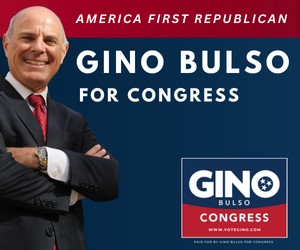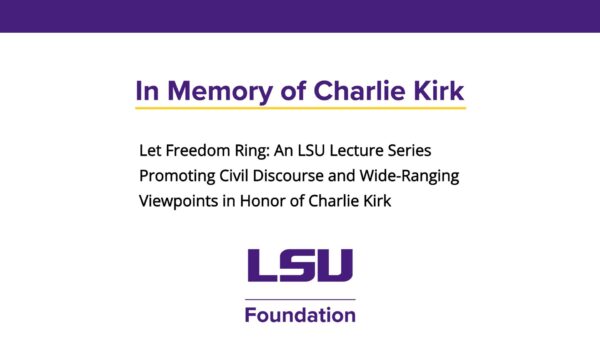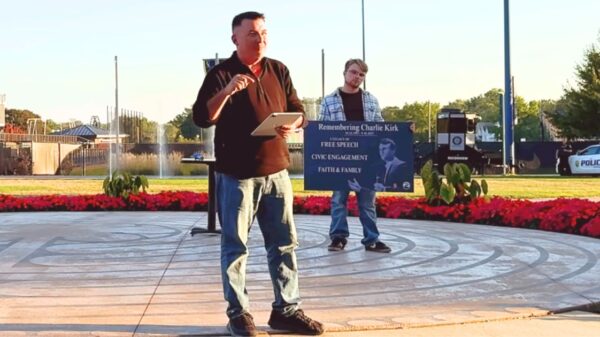By JC Bowman
Charlie Kirk, a prominent conservative voice in America, was brutally assassinated in Utah. His death has sparked renewed concern over political violence, free speech, and campus security across the country. This incident should serve as a wake-up call—our universities need to be places of open debate, where ideas can clash freely, and everyone has the chance to speak without fear of becoming the next headline.
In these highly political times, we face a crucial choice. It’s a moment that calls for reflection and a strong sense of responsibility. Our words hold power. They can reach far beyond our small circles, capable of either uniting people or tearing them apart.
We must choose to promote understanding and respect, setting a positive example for the younger generation that observes and learns from every action we take. We need to rise above the wave of hostility that has been overwhelming our public conversations.
Let’s discuss freedom of speech, the foundation of any genuine conversation. It’s the lifeblood that enables people to share their ideas, challenge the status quo, and pursue the truth without fear of the “thought police.” This right helps societies self-correct through lively debate, revealing weaknesses and fostering progress.
As educators, our mission is to focus on governance, prioritize education, and create an environment where our students can thrive. They deserve nothing less than our unwavering support. Together, we must ensure our schools are havens of learning and growth, where the promise of a brighter future can blossom.
The great orator Frederick Douglass believed that freedom of speech is crucial for defending liberty.
For Douglass and his fellow abolitionists, the open exchange of ideas was essential for achieving greater political freedom.
When minds are free to think, they can develop their thoughts better through debate and reason.
That’s why Douglass opposed censorship and shoutdowns: silencing a speaker isn’t a logical argument; it’s a form of intimidation.
To shout down someone you disagree with is to force your opinion on others, the opposite of persuasion.
Justice Oliver Wendell Holmes Jr.’s words from the 1919 case Schenck v. United States stated: “The most stringent protection of free speech would not protect a man in falsely shouting fire in a theatre and causing a panic.” Justice Louis Brandeis also hit the nail on the head in his concurring opinion in Whitney v.
California (1927), arguing that freedom of thought and speech are crucial for the spread of political truth and the proper functioning of democracy.
His insights shaped the Supreme Court’s later rulings that protect free political discourse.
But let’s not fool ourselves, there are limits to free speech that must be navigated carefully. It’s a balancing act between protecting individual rights and preventing harm. History is filled with examples of how silencing dissent can support those in power, while unchecked speech can become a weapon in the hands of those who control the narrative. The real question is: who gets to draw the lines, and how do we ensure the right to question and criticize remains intact?
These days, our educational institutions seem to be tiptoeing away from discussions on current events and politics, mainly because everyone’s too scared of the fallout—be it institutional, external, or personal. This retreat has left us unable to tackle the pressing issues of our time, as we’re not engaging in those critical conversations.
Threats of violence have no place in our discussions. While passionate disagreements are natural, we must uphold civility and respect in our community. Schools should not take official stances on political or cultural issues. The First Amendment does not protect speech that is obscene or defamatory, and if your speech disrupts school operations, it may not be protected.
However, there is an essential difference between hate speech and speech that makes you uncomfortable. Cancel culture is a double-edged sword, used by both sides in a high-stakes game that damages trust and limits free speech. This back-and-forth causes more harm than good to democracy. It’s a reminder that accountability thrives in debate, not in tearing others down.
It’s a tightrope.
Freedom of speech is a fundamental part of an open society. Through discussion, we enable people to share ideas, question key issues in their lives, and express themselves without fear of censorship. It can be messy and sometimes uncomfortable, but it’s essential for uncovering the truth and protecting individual freedom.
Absolute free speech can cause more noise—misinformation, hate, or harmful opinions—but silencing voices risks suppressing dissent and innovation. Yes, free speech creates noise, and heavy moderation can lead to tyranny. Finding balance means trusting people to think critically while accepting some chaos. It’s a small price to pay for our freedom.
###
JC Bowman is the executive director of Professional Educators of Tennessee, a non-partisan teacher association located in Nashville, Tennessee











